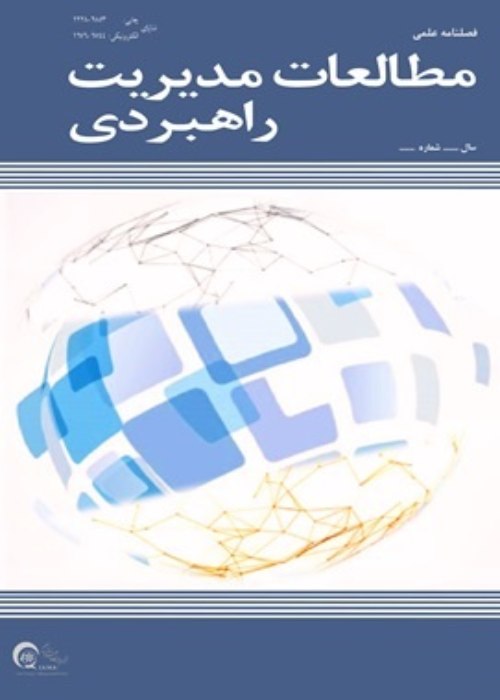Future Scenarios of Public Participation in Iranian Policy Making
The origins of public participation in the political decision-making process go back to democracy in ancient Greece and have been subject to the constant change in the following centuries. So, after a period of neglect step in the first half of the twentieth century, since 1960, public participation has been used by governments as a fundamental tool to strengthen legitimacy, public confidence in government and improve the transparency of decision-making processes. In recent years with revolutionary spread of Information and Communications Technology has become particularly important. This subject has been paid attention by the policy-makers in Iran recently. However, currently, the citizens play less role in the public policy-making process in Iran. So, this deficiency as a challenge and a necessity of interaction in the public policy-making system with citizens and civil society has been raised as a basic need and requires research. Despite great academic debates in the field of public participation, no research has been done on whether it is possible to use direct participation mechanisms in policy-making in the future of Iran. Therefore, the purpose of this study is to investigate future scenarios of public participation in policy making.
The present study is a futurist in terms of approach. Futures studies has multiple methods, in this study, scenario planning method was used as the main method. To achieve the final scenarios, a four- phase roadmap was set up. The first phase of this research process was dedicated to literature. In the second phase of the study, the drivers of public participation in policy-making were identified. For this purpose, first, the identified drivers were provided to the experts in the first phase for correction and completion, and after interviewing the research experts, the thematic analysis technique was used to classify the final drivers. Finally, after identifying the final drivers, the cross impact matrix was formed and completed with the expert panel approach. Based on the cross impact analysis approach, the most important uncertainties related to the research topic were identified. In the third phase, uncertainty questionnaires were designed based on the identified uncertainties related to the subject. The designed questionnaires were distributed among the statistical population. The results obtained from the uncertainty questionnaires provided the necessary input for constructing the scenarios. In the final phase of the research, after identifying the critical uncertainties, the framework of scenarios was designed and described.
Findings showed that the future of public participation in policy making is not predetermined and is affected by two uncertainties. On the one hand, the type of government can affect the status of public participation in policy-making. On the other hand, national culture in this area can be participatory or authoritarian for various reasons. Thus, the status of public participation in policy-making will be different. In this regard, four scenarios of consensus democracy (from the intersection of participatory culture and democratic government), majoritarian democracy (from the intersection of authoritarian culture and democratic government), electoral authoritarianism (from the intersection of participatory culture and authoritarian government) and closed system (from the intersection of authoritarian culture and authoritarian government) was examined.
Among the research scenarios, participation is possible only in the two scenarios of consensus democracy and majoritarian democracy. However, strong participation can be achieved only in the scenario of consensus democracy. The reason is that the more a political system realizes high influence of voters by elections, the less it can grant influence by direct participation, and vice versa. In such a way that direct participation is not meaningful in majoritarian democracies because it makes electoral competition less important. In this way, the voters have other participation channels except the elections to influence the decisions of the parliament, so they may not show much desire to participate in the elections. Based on the research results, the following suggestions can be made for Iran: 1) the prerequisite for participation is informed and capable citizens. Strengthening the tools of democracy (free media, strong parties, and strong civil society) is very important for this purpose, because personal knowledge, trust and advertisement result in citizen's participation. Therefore, the existence of strong and accountable parties and civil society is very important, otherwise, it becomes one of the weaknesses of direct participation. 2) A special participatory mechanism should be used based on the political structure and cultural context. It seems that majoritarian democracy is more responsive than political culture in Iran, and as stated, direct participation is not meaningful in majoritarian democracy. 3) However, in recent years, the growth of public awareness and technology along with distrust of politicians, have led to the issue of direct participation in policy-making being raised in majoritarian democracies as well. If these tools are to be used, mechanisms for direct participation (such as referendums and initiatives) must be part of the constitution and the conditions for their use must be determined. 4) To institutionalize direct participation in Iran, it is better to start from the local level, considering the political culture, the size of the country and the novelty of this issue. Also, discourse should be created in this field. 5) Finally, it should be noted that, the culture of direct participation is a collective learning process that takes time to develop as well as opportunities to correct mistakes.
- حق عضویت دریافتی صرف حمایت از نشریات عضو و نگهداری، تکمیل و توسعه مگیران میشود.
- پرداخت حق اشتراک و دانلود مقالات اجازه بازنشر آن در سایر رسانههای چاپی و دیجیتال را به کاربر نمیدهد.




